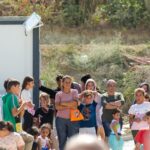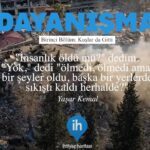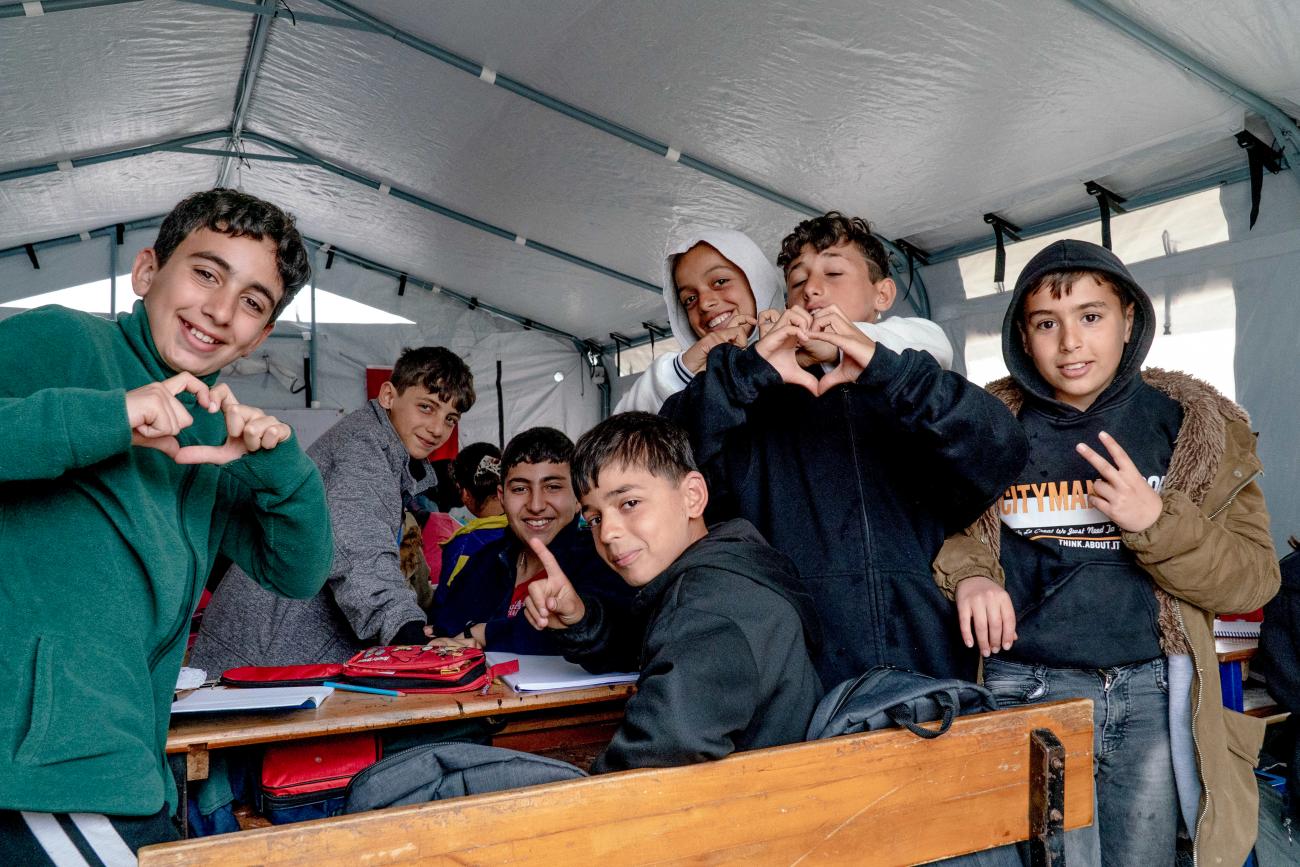
Cultivating hope in earthquake-hit city in Türkiye
Earthquake survivors and volunteers in Hatay
In one of the largest camps for the survivors of last month’s earthquakes in Hatay – Türkiye’s most devastated city – several tents are filled with the sound of children’s laughter. These UNICEF tents in Orhanlı camp serve as educational spaces, providing students from preschool to twelfth grade with a chance to continue their education.

“We will cultivate hope in Hatay.”
Mahmut Fatmaoğulları, the camp’s Headmaster of education, says: “While establishing Orhanlı camp, I emphasized the importance of providing education for the children affected by the earthquakes. We defend children’s rights, we defend human rights, we also defend education rights.”
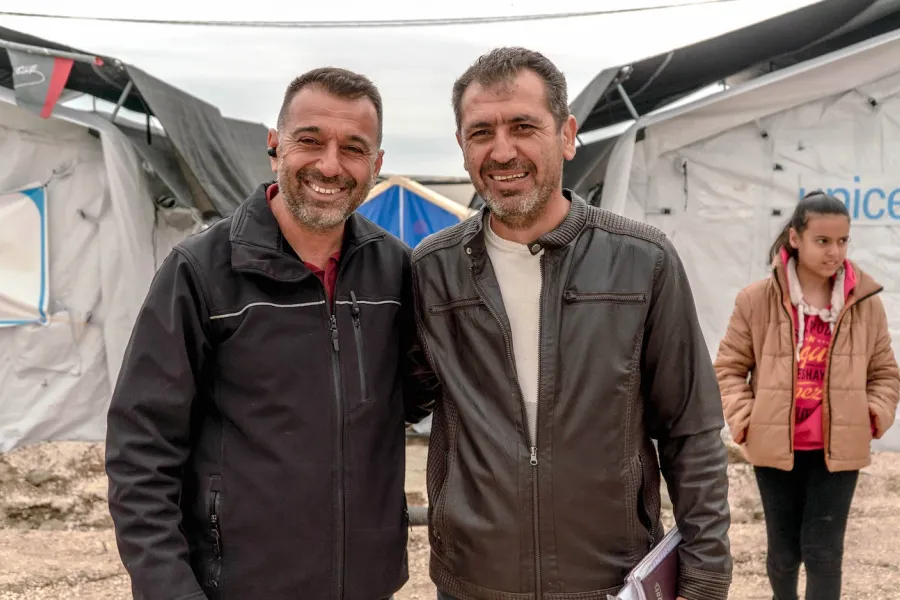
Mahmut is from Hatay and survived the earthquakes that wiped out the city. He relocated his family to another Turkish province and returned to Hatay to ensure local children could continue their education. He and other teachers who also survived the earthquakes salvaged furniture from the debris of their damaged schools and brought it to the camp. Within just five days of establishing Orhanlı camp, they commenced educational activities.
The earthquakes destroyed or damaged numerous schools, leaving nearly 4 million children without access to education. The Turkish Ministry of National Education has resumed education in six of the 10 affected provinces. In provinces where education will resume gradually, like Hatay, UNICEF is providing temporary learning spaces to help the Ministry provide catch-up classes to thousands of students.
“We will cultivate hope in Hatay,” says Mahmut.
“Being here is enjoyable, I can put aside the trauma of the earthquake and concentrate on other things.”
Every day, Kemal Temiz drives his son, Mustafa, 15 km from their village to attend the classes in Orhanlı camp.
“The most important thing for me is that he gets an education. Our children are our future” says Kemal.
Mustafa is preparing for the national high-school admissions exam. He is thriving in the camp’s environment, enjoying the opportunity to make new friends.
“Being here is enjoyable,” he says. “I can put aside the trauma of the earthquake and concentrate on other things.”
UNICEF and its partners, including the Ministry of National Education, are working to ensure that thousands of children can swiftly resume their education through initiatives in child-friendly learning spaces.
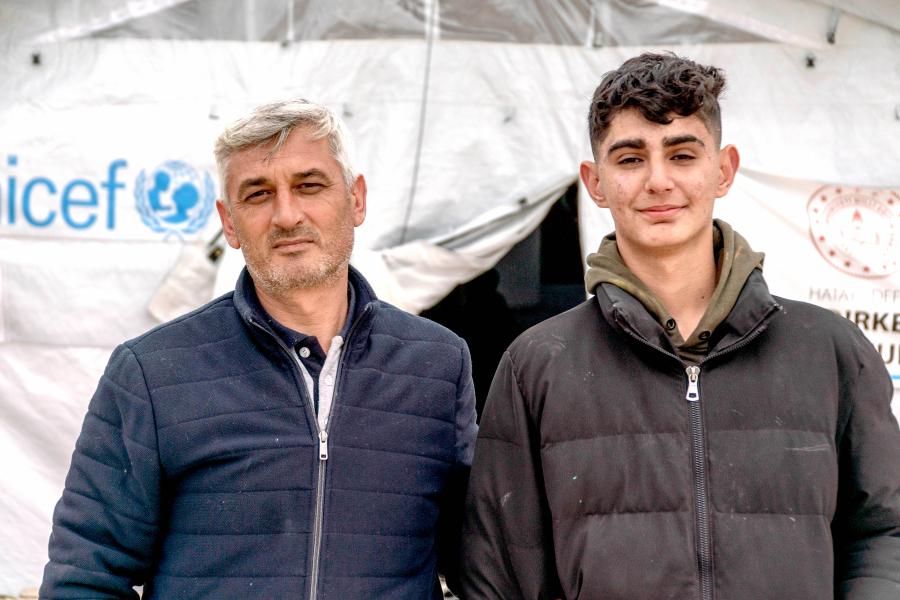
Better shelters, dignified living
Just a few kilometres from Orhanlı camp lies IKEA camp, which accommodates around 306 people in relief housing units (RHUs). IKEA Foundation and Better Shelter donated 5,000 RHUs to the International Organization for Migration (IOM) to support the most vulnerable people in Türkiye and Syria who no longer have homes.
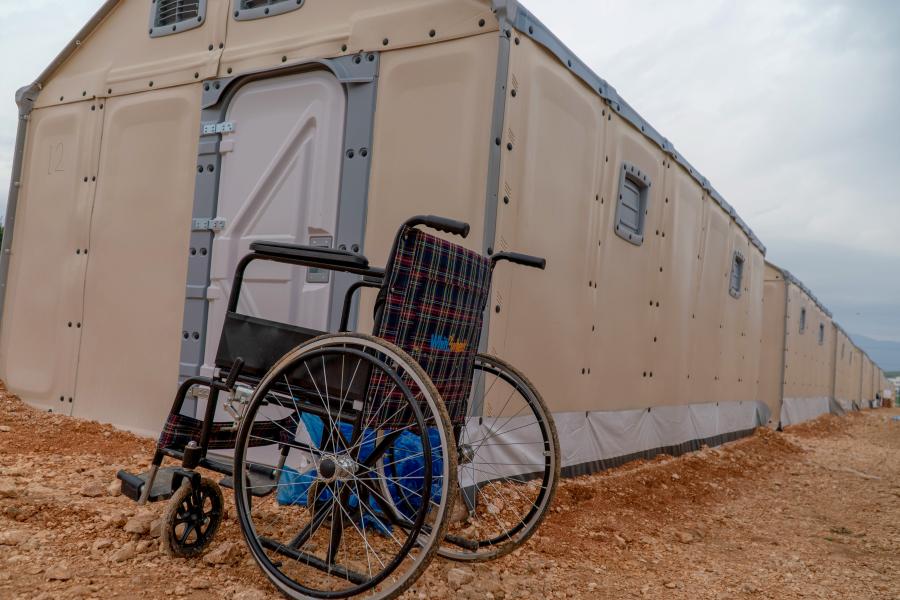
As part of this effort, 350 RHUs have been dispatched to Hatay, 103 of which are set up in IKEA camp.
Ibrahim Halil Timurtas, IOM’s Head of Office in Hatay, explains: “IOM collaborates with AFAD [Disaster and Emergency Management Presidency], which determines the location of the RHUs. Our responsibility is to transport the RHUs and train AFAD staff to set them up.”
“We are now in better conditions. We were out in the cold before. We are happy to have this new shelter.”
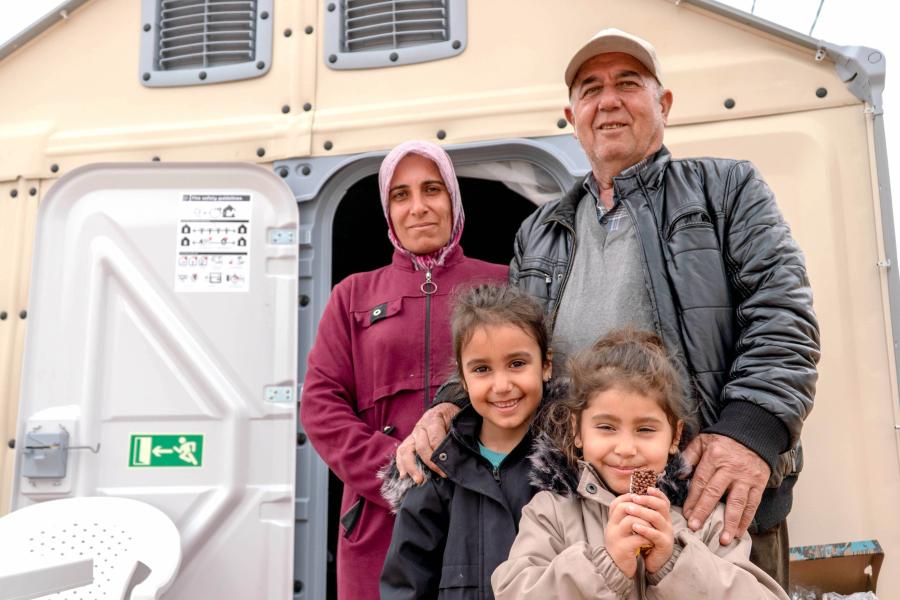
Ali and Siham Şahne, together with their children and grandchildren, recently relocated to IKEA camp. They previously lived in a makeshift tent they had constructed themselves. They still lack many basic necessities, but they are grateful to have a better place to stay.
“We are now in better conditions,” says Ali. “We were out in the cold before. We are happy to have this new shelter.”
Before the earthquakes, Ekrem Doğru was a high-school Principal. Today, he is the Manager of IKEA camp, appointed by the District Governor’s Office.
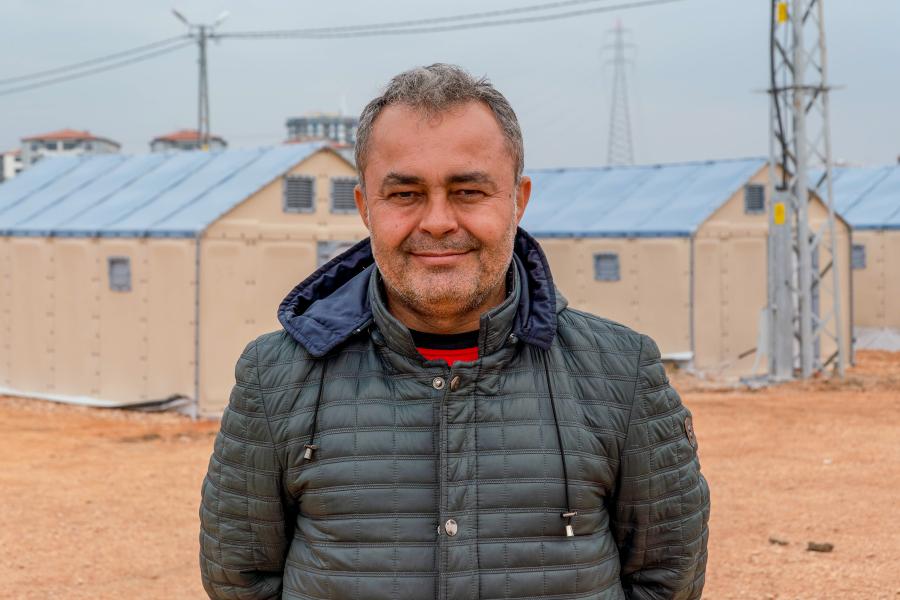
Ekrem explains: “Currently we have 306 people living in this camp. We have separate male and female toilets and showers, as well as a dining hall where Kızılay [The Turkish Red Crescent] supplies food through mobile kitchens. It brings me great happiness to see the residents’ satisfaction. I hope better living conditions can be sustainable.”
Local organizations making a difference
The earthquakes left many communities in urgent need of humanitarian aid, from food, water, hygiene and shelter, to medical assistance and psychosocial support. Humanitarian organizations have been on the ground since day one, playing a vital role in delivering this aid.
In the space that hosted Hatay’s EXPO exhibition space, dedicated volunteers work tirelessly to sort and package a wide range of relief items for immediate delivery to people in need. Twenty-six NGOs that are members of Disaster Platform (a consortium of NGOs that respond to disasters) use the space to stock and organize much-needed aid.
Needs Map, a social cooperative and UN partner, uses technology to ensure efficient aid distribution by NGOs and hundreds of volunteers.
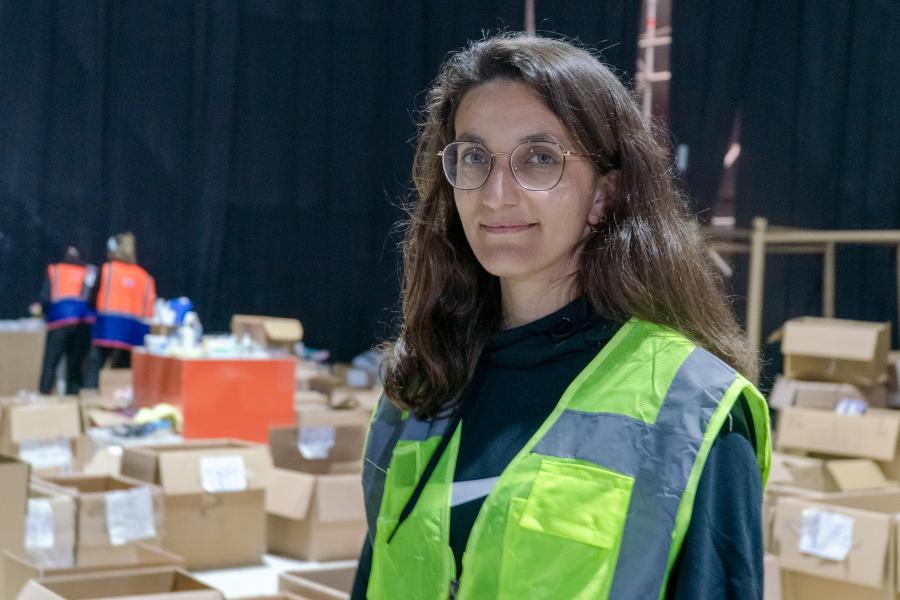
“With so many terrible things happening, I could not stay at home.”
Almes Söylemez, Associate for Social Impact at Needs Map, explains: “People affected by the earthquakes can communicate their specific needs through our WhatsApp line, and aid is directly shipped to them via our delivery system.”
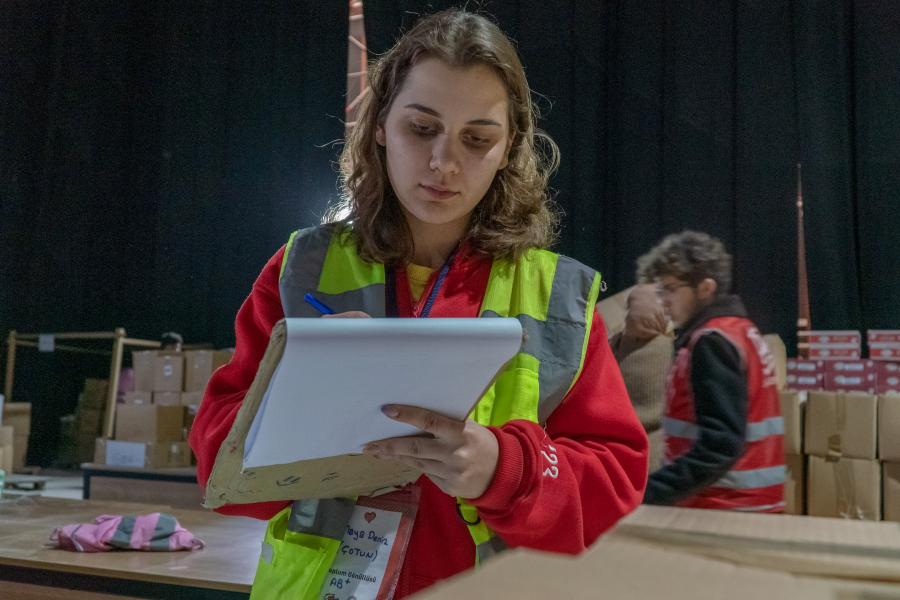
Nineteen-year-old Maya, an economics student at Istanbul Technical University, has volunteered since the first day of the earthquakes.
“With so many terrible things happening, I could not stay at home,” she says. “This tragedy could have easily occurred in Istanbul, and I could be someone in need of assistance right now. It is crucial to support each other during difficult times, because only through collective efforts can we survive.”
Support to Life (STL) also provides life-saving aid to affected communities. It acts as a national NGO representative in the UN’s Humanitarian Country Team, and it contributes to humanitarian relief efforts across various sectors under the humanitarian response coordination mechanism established in Türkiye by the UN and partners.
Gonca Doğan, STL’s Emergency Area Coordinator in Hatay, says: “Our approach prioritizes people from disadvantaged groups, including pregnant women, women with children aged 0-2, older people with chronic illnesses, and people with disabilities.”
Humanitarian organizations need adequate funding to deliver life-saving aid to earthquake-affected communities. On 16 February, the UN launched a Flash Appeal for US$1 billion to assist 5.2 million people. As of 27 March, the appeal is only 19.6 per cent funded ($197.1 million).
If you are interested in donating to the organizations mentioned in this story, here are the links where you can reach them:
If you would like to volunteer, get more information here.
Text by Gizem Yarbil Gurol.
Photos: UNOCHA/Ahmad Abdulnafi
© 2023 UN Humanitarian
